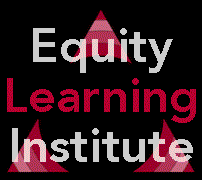
|
|
|
|
an EdChange project by Paul C. Gorski
|




|
Racism in Staten Island 09.03 by Marie Ng I was watching the nightly news last night as I always do and to my surprise, my hometown Staten Island had made a headline. I did not immediately assume it was bad news, but news nonetheless about New York's “forgotten borough”. Unfortunately and not to my surprise, it was reports pertaining to racial hostility among youngsters on the island. The first thing I thought was, “wow.” The second, “there is a lot of racism in Staten Island.” Needless to say, this reaction is not a good one to have to endure in a day and age where outright racial attacks, physical (God forbid) and verbal, are supposed to be “a thing of the past”. Rather, they linger like cats ready to pounce, game to attack when the right moment allows. How sad it is that I, an Asian woman in my 20's still fears the threat of racial acts in the place where I grew up and spent the better part of my life. Maybe the fear has to do with my childhood experiences. Growing up in Staten Island, not so much by choice as necessity (i.e. immigrant families staying together – ours chose Staten Island), some of my most unforgettable memories are those of racial harassment. As a child, trying my best to stay on top of my grades, fit in with the “popular” crowd and simply be a child, I would sometimes be so stricken with terror of having to return to school because of the agonizing bus rides where my Indian friend and I would get harassed by the White kids. To my shock and disgust, when thinking back to those days, those kids were no less sophisticated with their vocabulary of racial slurs as an adult would be. These were not your average cases of kids picking on kids. I could not help but relate my experiences growing up in Staten Island when I heard the sad news of those young people, some as young as 15 if I recall correctly, making headlines for something that I thought mothers and fathers would have scolded them about many years before this future occurrence. My mother also reminisced. She told me a story about when my younger sister, who was then in elementary school, had rocks thrown at her by neighborhood kids while also heaving racial slurs at her. She recalls this vividly. My mother was so angry at the time she dragged the child by the collar and sent him home. A very impulsive thing to do needless to say but in her explanation to me, she recalled being a horrified mother so angry that a child of that young age could be capable of spewing such utter disgust. It makes you wonder what opinions their parents are feeding them at home and how they affected the futures of these children (maybe they were one of the teenagers in this week's news). So without having to mention the struggles that my immigrant parents had to face, leaving their lives to live in a free Country where their children would know the prospects and endless possibilities of an uninhibited world, it's plain to see that our struggles as Asian Americans, African Americans, Indian Americans, etc. are not yet won. But it is also worthwhile to question whether or not we as people of a variety of cultures does all we can to fight this battle. Are our schools educating our children? Are our neighbors cultivating the thoughts of their families to those without racial hatred? And if not, are we doing what we can to make sure that that sort of education is being regulated? I am proud to be an American. When I go elsewhere I am proud to say that I am from America and am pleased to attract people with my perfect American English. I love this country and I admire the meaning behind the journey from afar that my parents assumed to bring my sister and me here. I rarely go a day without thinking about the endless possibilities and achievements I will one day hang my own trophies for. But this country also has the ability to make me terribly sad. Rather distressed thinking that just a couple of weeks ago a teenage girl yelled “gook” at me in front of my home; disappointed that I had to hear from a friend about her friend blatantly disrespecting a black woman for being a black woman. When will we learn? Or when will we start truly understanding that this is not the path to a future that bares peaceful fruits. Obviously, these occurrences not only envelop this small blip on the map called Staten Island. I know I am, as my family is, genuinely hurt and deeply scarred from my brushes with racism. It's not “time to do something about it.” It has and should have been that time long before this and other incidents matured. We need to continually edify our youth at school and at home. Realizing that in the minds of the youth of America is the means to a future of added racial ferocity or a future that promises the hope of peace. Imagine being six years old, taking in the pleasures of a warm summer day, playing with your new Barbie dolls on the front steps of your home, when a child who looks no older than yourself presents to you physical danger for nothing more than being a “chink.”
|